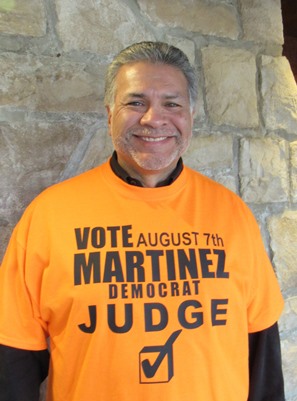The Unified Government Public Works and Safety Committee tonight moved a pilot trash collection program forward to the full UG Commission for approval.
Public Works Department and Waste Management officials described the test program for an automated cart system during tonight’s meeting.
The pilot program, if approved, would be conducted for six months in three neighborhoods, Strawberry Hill, North Ridge in Piper Estates, and Highland Crest.
Residents would continue to have weekly trash collection. They would receive one 95-gallon trash can for their trash. Anyone with additional bags of trash would have to purchase stickers at $1.25 for each bag, or they could sign up for an additional trash cart for $5 a month more.
Residents would receive another 95-gallon can for recycling, which would be collected every two weeks, according to officials. There would be no limit on recycled items; extra cans or bags could be added to recycling.
The pilot trash collection program could come before the full UG Commission on May 10, according to the agenda.
The vote to move the item forward to the full Commission was opposed by Commissioner Mike Kane. Commissioners Melissa Bynum, Brian McKiernan, Angela Markley, Jane Philbrook and BPU board member Tom Groneman voted in favor of moving it forward.
Waste Management officials described an automated truck with an arm that reaches out and grabs a trash can, emptying it into the trash truck.
Several other communities throughout the nation, and some in the Kansas City area, already use this system, according to officials.
Some of the commissioners expressed doubts about the plan tonight.
UG staff said there was $79,000 available in credits that the UG could put toward the cost of this pilot program.
Commissioner Kane said he was against giving Waste Management a dime to conduct the pilot program. This program in theory may save the company money, and it will use less employees, he said. He also was against using any credits the UG has with the company.
He also asked how elderly people would be able to drag a 95-gallon trash can up a long driveway, especially in bad weather.
He said he gets a call about once a week from residents in his district whose trash wasn’t picked up.
Commissioner Jane Philbrook also said she has had several complaints about trash pickup. The Stony Point area was mentioned as one place where the work wasn’t done adequately.
Philbrook said the money the UG was talking about was not “credits,” it was what the company owed the UG for not doing the job. She said she would rather see that money used by the company picking up trash in the parks.
She said she was interested in a basic level of care for residents, and also, she wanted to make sure that there was more than one meeting held in each neighborhood with the residents to discuss the program.
In answer to questions from Commissioner Brian McKiernan, officials said the automated trucks would be able to service the community faster. The trucks are slightly larger, with more capacity, according to officials.
McKiernan questioned the access on very narrow streets in some Strawberry Hill neighborhoods. An official said to service that neighborhood, they may have to retrofit a smaller truck with a cart tipper.
Company officials said if residents put out too much trash, over the limit, haulers would take it, but leave a tag that the resident needs to phone the customer service department to get more information about the trash pickup program. If the resident does it again, one possible solution would be for codes officials to give them a ticket, according to officials.
Waste Management officials said there are options available if the community wants to provide special services for the elderly or disabled. That possibly would cost more and would be negotiated as part of the contract.
Two residents spoke at the meeting.
Shirley Ikerd asked the committee to delay approval of the program, and wait until the public had more time to weigh in on it.
Sheryl Becker said trash has not been picked up consistently in town home areas.
For more information, and a video of this meeting on YouTube, visit https://www.youtube.com/watch?v=XGFGwnldwqI.

